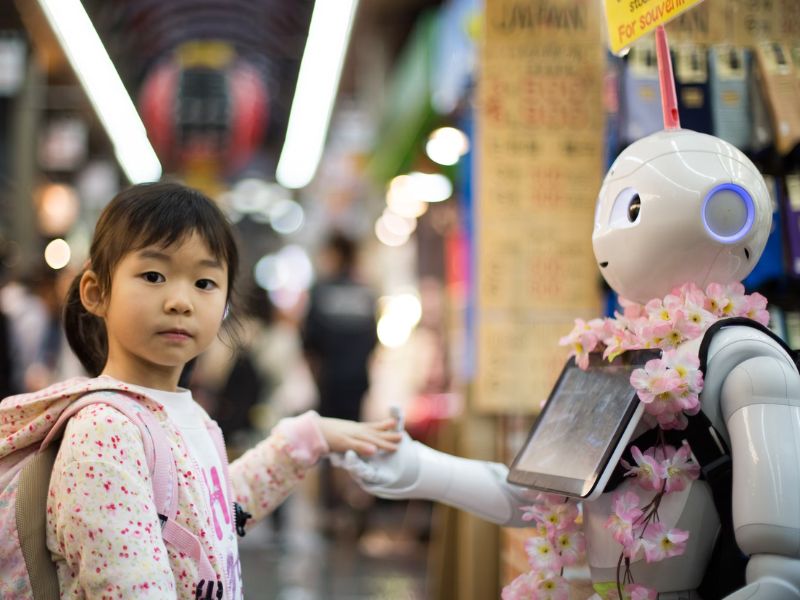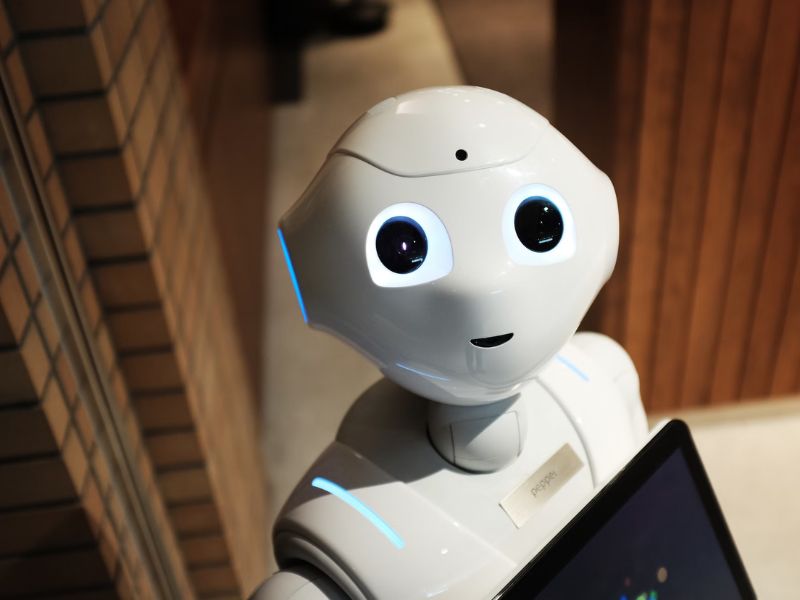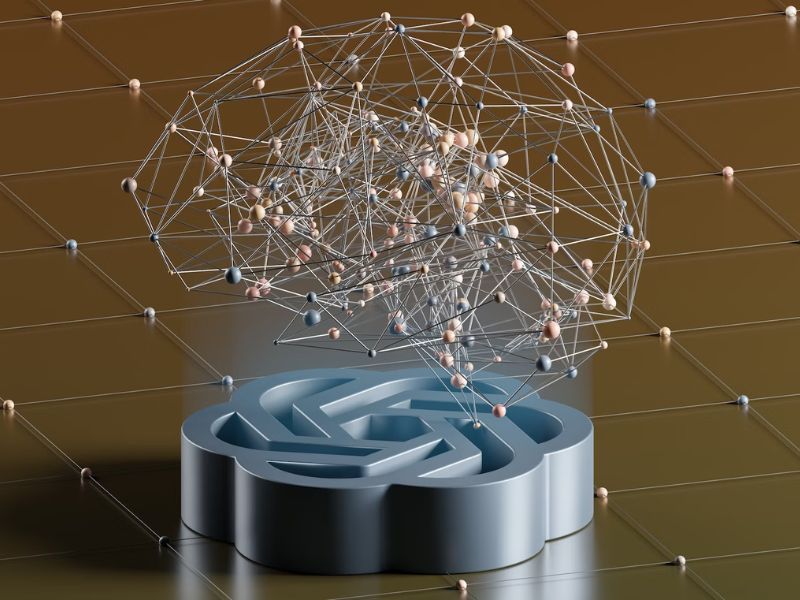The future of Artificial Intelligence beckons with promises and possibilities that have the power to reshape our world in unprecedented ways. As we stand on the cusp of this technological revolution, it is crucial to peer into the horizon and envision what lies ahead. This article from Nexle Corporation will show you how our lives will be revolted with these tools.
Future of Artificial Intelligence

What is the future of AI?
Two areas are now hosting some of the most exciting AI research and testing with potential near-term implications:
- Reinforcement learning: rewards and punishments are used instead of labeled data to train algorithms.
- GANs (or generative adversarial networks): pit two networks against one other to generate new content rather than evaluate existing information.
Examples of the first kind include Google DeepMind’s AlphaGo Zero, while examples of the second include the development of new images or sounds based on knowledge of a certain topic, such as celebrities or musical styles.
On a far larger scale, AI’s impact extends beyond its immediate applications, reaching into areas of sustainability, climate change, and environmental concerns. Through advanced sensors, cities could potentially become more manageable, addressing traffic flow, air quality, and various other factors.
Read more: Artificial Intelligence in the Workplace: Top 11 Tools to Do Your Tasks with Ease
What Industries Will AI Change?
AI in Transportation
One sector that will almost certainly experience significant changes due to the rise of AI is the transportation industry. AI will affect many areas of transportation, including self-driving vehicles and AI-powered trip planners. Even though we still have a way to go before we can fully rely on autonomous cars to transport us, that day is coming.
AI in Manufacturing
Artificial intelligence has benefitted the manufacturing industry for many years. As early as the 1960s and 1970s, AI-powered robotic arms and other bots were utilized. Predictive analytical sensors help ensure the smooth operation of machinery, while industrial robots perform specific tasks like assembly and stacking, working in close proximity to human workers.
Read more: Artificial Intelligence in Robotics: Top 6 Use Cases and Future (2023)
AI in Healthcare
Artificial intelligence in healthcare has begun to affect relationships between patients and doctors in ways that may seem silly at first. As a result of its ability to analyze large amounts of data, AI makes it possible to diagnose illnesses with greater speed and precision, accelerate and simplify the drug development process, and even monitor patients by means of virtual nursing aides.

Artificial Intelligence and the future
AI in Education
All age groups should expect to see an alteration in their learning processes as a result of AI in school. By using machine learning, natural language processing, and face recognition, AI can digitize textbooks, detect plagiarism, and even assess students’ emotions to identify those who might be struggling or feeling bored in class. In the present and in the future, AI will personalize the educational experience for each student.
AI in Media
It’s not only IT companies that are reaping the benefits of AI; the journalism industry is too. Consider Automated Insights, which the Associated Press uses to generate hundreds of annual earnings report pieces. Despite this, there are still many unresolved issues surrounding using AI writing tools like ChatGPT in the news industry.
AI in Customer Service
Nobody likes getting a call from a robot, but AI can help customer service workers do their jobs better. AI can make chatbots and virtual assistants that can talk to customers and solve their problems. Additionally, AI can gather and analyze data from customer interactions, providing valuable insights and feedback to both customers and service providers. The implementation of AI technology in customer service greatly improves efficiency and customer satisfaction.
АI in Finаnсe
A country’s growth depends on its money and finances. With AI in finance, people know how to manage and use their money optimally. In addition, it can also change the way people trade and invest money and help them to make fast decisions in some sudden cases.
For example, some research from Wealthramp shows that young people want more purpose and technology in money advice. Some rich investors use AI and digital tools to invest money, according to Wealthramp. There is also a new industry called bionic advice that uses computer and human skills to help clients better than either alone.

Future of artificial intelligence
АI in Militаry and Сyberseсurity
The safest way to increase a nation’s security is via the use of ICT in the military, which has led to the development of autonomous weapon systems that can function without human intervention. We may soon see robot armies that are as capable as human ones and have the same level of intelligence as human soldiers and commanders.
AI-assisted methods enhance mission efficiency and ensure safe execution. Some concerns arise regarding these systems due to the lack of complete transparency of their underlying algorithms. As deep neural networks grow and advance, the need for explainable AI becomes increasingly crucial. It is essential to avoid misusing technology or allowing it to make poor decisions independently, as this could lead to disastrous outcomes.
AI in Research and Science
AI accelerates scientific discoveries through the analysis of massive datasets, simulation of intricate systems, and assistance in drug discovery. The application of AI in climate modeling and environmental monitoring greatly benefits from its capacity to process and interpret extensive amounts of data.
In closing, the future of Artificial Intelligence holds tremendous potential and profound responsibility. It will impact various aspects of our lives, including healthcare, education, business, and transportation. Our decisions today will shape the AI-driven world tomorrow. The choices we make collectively will determine if this future brings progress, equality, and prosperity.
Table Of Content


